
Blues and Classic Rock Guitar Lessons in Glasgow
Have you ever dreamed of playing guitar like Jimi Hendrix,
BB King or Eric Clapton… but don’t know how to get there?
Have you ever dreamed of playing guitar like Jimi Hendrix, BB King or Eric Clapton… but don’t know how to get there?
If you’re anything like me, you picked up the guitar because you wanted to play sweet guitar solos and epic riffs like your heroes… not to spend years wrestling with boring, ineffective exercises and confusing music theory.
If you want to unlock your musical talent and start playing guitar the way you hear in your head you have come to exactly the right place. Welcome to Frets on Fire – a live guitar lesson program in the heart of Glasgow, 100% dedicated to Blues and Classic Rock.

What's the Deal?
Have you ever listened to your favourite players and just thought: “how they hell do they do it?”.
Most of our guitar heroes didn’t even know half the stuff you hear teachers talking about in youtube videos, but somehow they were able to write amazing songs, easily improvise awe-inspiring guitar solos on the spot and jam all night long with any musician.
Clearly, the legends of guitar knew a few things most people don't.
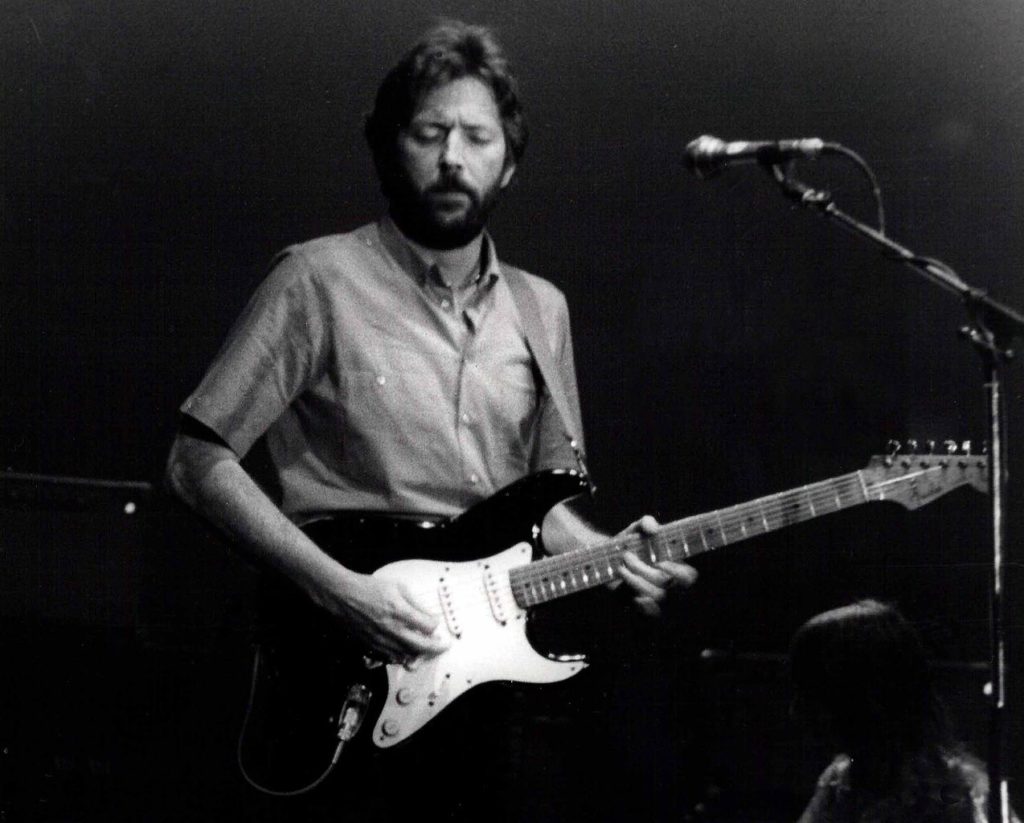
Great guitar players make everything look so effortless, as if their brain is wired straight in to their fingers and the guitar is just an extension of themselves. And you know the crazy thing? Playing rock and blues guitar is much easier than it seems… but only if you know how it’s done. If you don’t know your favourite players’ secrets, you may as well be trying to assemble a car engine from scratch with no tools and no manual.
Let me tell you a bit about my guitar journey, and why I became a guitar teacher
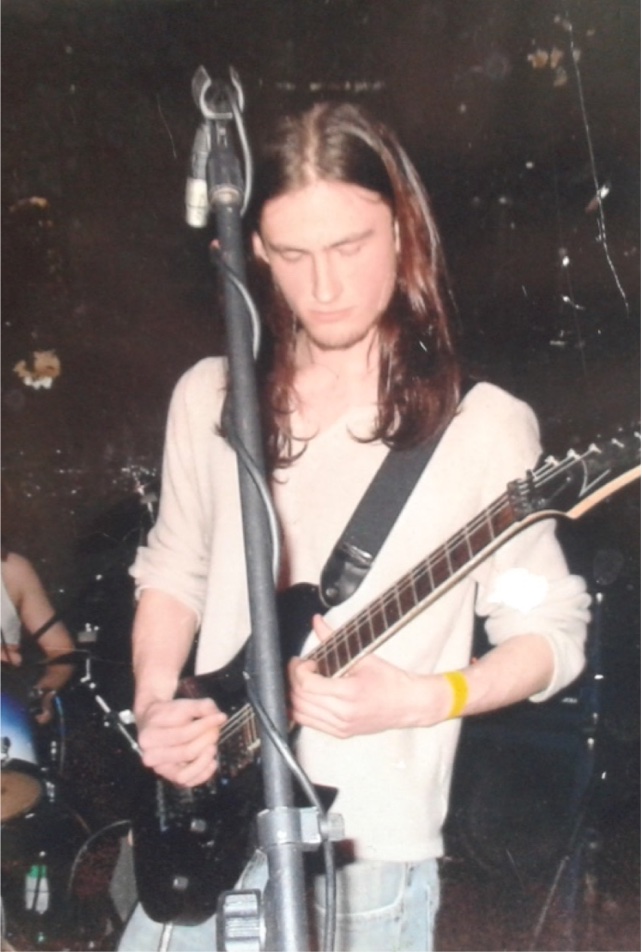
Me in one of my first bands,
aged 18
I first picked up the guitar almost 20 years ago, inspired by the sound of rock guitarists like Gary Moore, Eric Clapton, Jimmy Page, Jimi Hendrix, Slash from Guns n’ Roses, Angus Young from AC/DC, and many others. However, like many people, I started on an acoustic guitar and spent more months than I care to remember fighting to get a few basic chords together well enough just to limp through a simple song. I had none of the so-called “natural talent” people always talk about, and my progress was painfully slow. I didn’t have any confidence to ‘play out’ and no idea what to do even if I was asked, and if you had met me at the time you probably wouldn’t even have known that I played guitar!
I struggled away like this for a very long time, taking lessons with several teachers and practicing for hours each day. As well as my lessons with my guitar teachers, I spent all my spare money on every good book, magazine and DVD I could find. Eventually I reached a point where it hit me that I had been playing for almost ten years yet I was still nowhere near where I wanted to be. I could play some cool things and knew a few tricks, but I still didn’t feel like a guitarist. Whenever I was among good players I felt like I was on the outside looking in.
Totally frustrated, I finally decided I needed to go back to the start and do things properly, so I resolved to study music theory and put myself through grades to earn a distinction at Grade 8. It was only after all this that I began to piece everything together, and I realised I had taken a very long and hard road only to come full-circle and discover something I wish I’d known from the start: Blues guitar is easy to learn, and anyone can learn it quickly if they’re shown the right way.
So why does it take so long for most people to get anywhere with guitar?
People are always saying there’s “so much information” out there now, and there is, but let’s be real – the greatest players didn’t have access to even a fraction of this when they learned to play. If anything, the sheer amount of information to navigate these days can make it harder not easier to learn guitar. The information you find online is completely out of order, and so much of it is incorrect or irrelevant to your goals anyway.
Is that tab you’re using to learn your favourite song accurate? Are those tips coming from a reliable source? Are things being explained in the best possible ways? Unless you’re already an expert in this, there’s no easy way to tell. People contradict each other from one video and one article to the next, and you have no idea whose advice to listen to and whose to disregard. Anyone can upload anything to the internet, and some of the people out there making videos are barely one step ahead of the people watching. Besides, you don’t have 12 hours a day to watch all the guitar lessons ever made, and even if you did, you couldn’t hope to take in a fraction of what’s out there. It’s completely overwhelming.
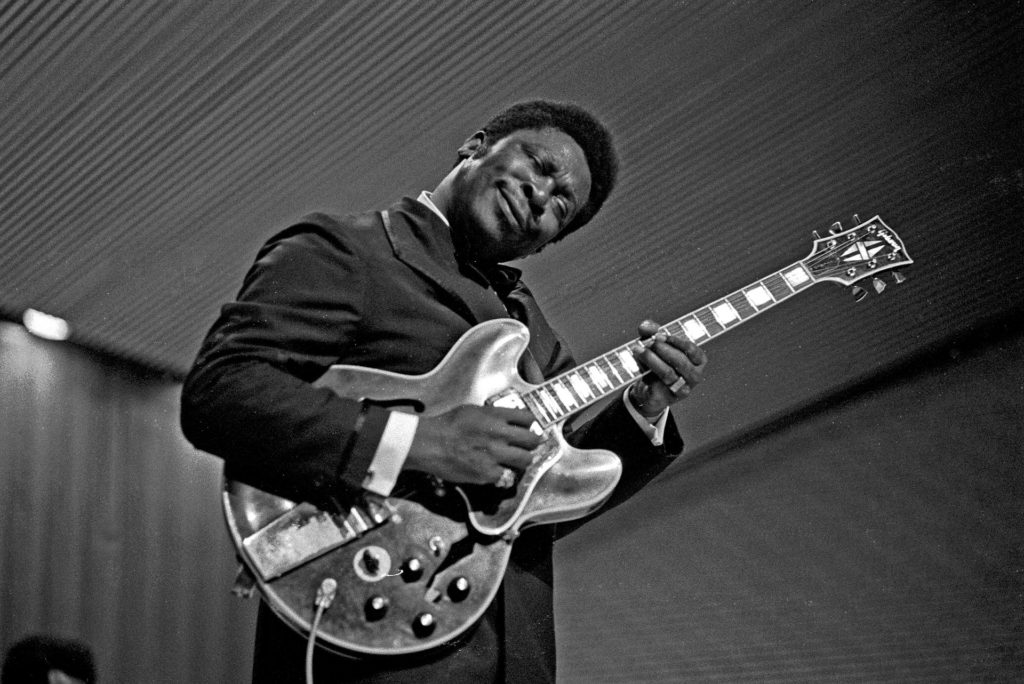
You don’t need all the information in the world, you need the right information – information that is accurate, presented in the correct order, customised for you and explained in a way that’s easily understandable. As well as the right information, you need someone to guide you and show you the way through it all, because no matter who you are you will have questions – and lots of them. Videos and books can’t answer your questions. No matter how well things are presented, explained or demonstrated, you will have questions about bits you don’t understand, and you need to have them answered correctly so that you can keep progressing and don’t get stuck or head off down the wrong path.
Getting the right information at the right time and getting the right answers to your questions is key, but learning to play like a real guitarist is about far more than just information. There is less ‘stuff’ to know than it seems, and anyway… if information was all it took we could just buy a book and bang – everyone would be a great guitarist. In the same way that you can’t explain to someone how to ride a bicycle, there are many skills that cannot be acquired simply by hearing about them. Some things you have to just do.
Can you get there by yourself?

Perhaps you’ve been thinking you just need to go it alone, somehow. After all, most of your favourite players learned by themselves and didn’t take lessons… did they? To put it bluntly, this is one of the biggest lies in the guitar world. Many of the guitar legends straight-up did have lessons — they just say they’re self-taught because they think it sounds more rock ’n’ roll and mysterious.
More importantly, whether certain people had ‘formal’ lessons or not, all of the guitarists you listen to had musical mentors. These were family members or close friends who already played instruments, elder musicians who took them under their wing and showed them everything they knew, and peers and bandmates they played and learned with ‘on the job’.
People hear vague phrases like “self-taught” and imagine a mythical hero emerging from a cave with incredible skills, but don’t make the mistake of confusing the classical or traditional idea of ‘guitar lessons’ with Music Education. People who don’t know any better often say these kind of players “didn’t know what they were doing”, but this couldn’t be further from the truth. Blues and rock musicians had far more Real Music Education than most people ever get, and you won’t learn to play like them by sitting at home by yourself watching youtube videos and hoping for the best.
The fastest and best way to learn blues guitar is the same way your heroes learned, which is the same as it has always been – through real, person-to-person interaction, and fun, informal face-to-face instruction with an experienced player who is great at breaking things down. In other words, with a teacher.
You need a guitar teacher… but not just any teacher
I took music in school because I thought it would be fun, but every lesson was devoted to either Classical or Scottish traditional music. The music my friends and I listened to was never mentioned once! Many of my early music teachers seemed to live in some kind of time-warp where most of the last century of music just didn’t happen. Sadly, I know this is not an unusual experience, and many guitar teachers continue in this tradition today.
Getting a teacher is all very well, but finding the right teacher for you isn’t like buying something like a Coca Cola. It’s not something where you get the same experience no matter where you go, because a teacher is an individual and their lessons are a service, not a product. Anyone at all can call themselves a guitar teacher, and the quality of instruction out there varies wildly, so how do you know who is the real deal?
Most private teachers say they teach “all styles to all levels”, but you need to take this with a healthy pinch of salt and remember this is why we have the expression Jack of all trades, Master of none. Nobody is all things to all people, and in reality not even the best musicians in the world can play all styles of guitar to an advanced level, let alone have the experience to teach them. It’s a bit like when you ask a new acquaintance what music or bands they listen to and they reply with “anything” or “everything”, or just list every music genre in existence without giving a single example of something they really like. You can tell they’re not being sincere.

All styles of music are related, and a good teacher ought to understand and respect them all, but the fact is that high-level guitarists in different styles such as Classical, Jazz or Blues-Based Rock have markedly different techniques, strengths and skill sets. It is critical for you and your guitar teacher to be on the same page, and for your teacher to be able to play guitar like you want to so that you get the right instruction for your goals. In reality, while they might be good at what they do, most music teachers don’t know the first thing about how to play like the guitarists that inspire you, but don’t just take my word for it – let me give a quick example that proves it. Have you heard of the well-known ‘rule’ that your thumb should be positioned at the back of the guitar neck? There’s a good chance you have because, according to the vast majority of traditional guitar teachers, this is correct technique.
If so, these guitar teachers really need to have a word with a few people, like Jimi Hendrix, Stevie Ray Vaughan, Eric Clapton, Gary Moore, BB King, Keith Richards, Dave Gilmour, Jimmy Page, Ritchie Blackmore, Slash, Angus Young, Jeff Beck, Brian May, Carlos Santana, Eddie Van Halen, Yngwie Malmsteen, Kirk Hammett, Dave Murray, Adrian Smith, Zakk Wylde, Marty Friedman, Joe Satriani, Steve Vai, John Mayer, Eric Gales and Joe Bonamassa – and let them know they don’t know what they’re doing, because none of their thumbs are at the back of the neck:
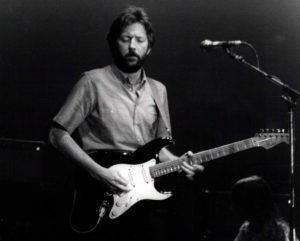


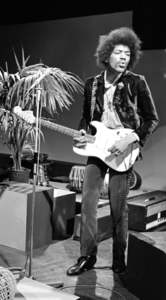


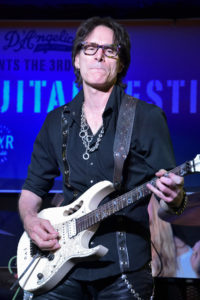

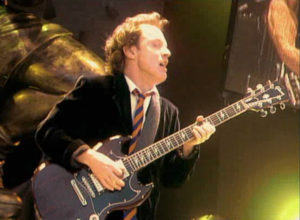

If this is indeed a ‘rule’, then why does virtually every great player seem to ignore it and do the opposite? Needless to say there are very good reasons, but the point here is that if you want to play guitar like your heroes then you’re not going to get there by following generic advice that directly contradicts how they play. It’s no wonder so many people buy into the myth that this kind of guitar playing must come naturally or can’t be taught when you hear so many so-called teachers contradicting the greatest guitarists in history, and saying things that can’t possibly be right. This is just one small example of the kind of low-quality information and bad advice you get with lessons from inexperienced teachers and classically-based players who can’t play the guitar the way you want to. Take it from me, because I’ve been there – careless advice that’s not tailored to your goals will set your progress back by years.

Don’t get me wrong here – It’s not about mindlessly copying famous players, nor is it about cutting corners or ignoring tradition just for the sake of it. Some of the things you see musicians do are bad habits that you will want to avoid yourself, but other things are essential to playing in their style. You need to be able to spot the difference. It’s not about ‘telling you what to do’, but explaining how and why certain things work (or don’t work), and showing you when to use different tools to get the result you want to get. It’s about having a teacher who has already been through it and puzzled through all this stuff and worked it out, so you don’t have to waste half your life guessing and searching for the right solutions. It’s about having a teacher who genuinely does have the knowledge, experience and expertise to demystify the guitar and give you the skills to play it the way you want.
And that is exactly what you get in the Frets on Fire Program – a full-time, dedicated teacher who walks the walk and knows what he’s talking about, communicating the correct things in the right order, in a clear, straightforward and friendly way. But that’s not all you get here, because it’s not about me, the teacher, it’s about you. You don’t go looking for help just to sit and gush over someone else’s playing and listen to his gigging stories. You’re here to learn how to play for yourself, and I understand that. That’s why every part of the Frets on Fire Program itself has been designed to ensure you make progress that you can really see and hear – and fast.
What do I mean by a Program as opposed to ‘normal’ guitar lessons?
The traditional guitar lesson format
(and why it doesn't work for most people most of the time)
Imagine you want to learn to play football, so you sign up for coaching. You’re excited to get started, but imagine you find that all that happens is you go to a footballer’s house and sit for one hour a week talking about sport. Sometimes you get to pass the ball around his living room for a couple of minutes. No matter how nice a guy or good a player he was, would you be able to play football after a couple of years of doing this?
No – of course not! Yet this picture is very similar to what the experience of taking private guitar lessons is usually like.
The typical image most people have of guitar lessons is an isolating experience where you have to sit doing things you don’t really enjoy or want to do, either by yourself, or with a teacher watching your every move like a hawk and interrupting every couple of seconds to list everything you’re doing wrong. When a lesson is finished you leave the teacher’s place, and start to forget most of what you did until it’s almost time for the next lesson. When you see your teacher again he briefly asks “so, how did you get on?”…
Regardless of the answer, he proceeds to show you another new thing that either has nothing to do with the previous thing, or which is trying to build on a previous step which you still haven’t mastered. At the tail end of each lesson, with moments to spare, you’re told to “practice that”, as if practicing your instrument is an incidental afterthought. But wait, you usually cover several things in one lesson, so… Practice what exactly, how, and for how long?

As things continue like this and the weeks start to turn into months, you begin to wonder — how does all this different “stuff” join up, and how do you fit it all into a manageable practice routine that actually moves you forward? While you try to figure out what to do by yourself at home, the vast majority of your lesson time is spent with the teacher talking and bewildering you with examples and more and more new information which you don’t yet know how to use, not on activities that are actually making you a better player.
Sooner or later you have a busy week at work or at home and fall off the practice wagon entirely, your guitar hasn’t even left its case, and you arrive at your next lesson feeling bad because you’re no further forward than you were the week before. Not wishing to bore you by repeating the exact same lesson again, the teacher will throw more balls into the air and pile on yet more new stuff on top of all the previous stuff you’re still trying to figure out. This quickly results in a practice ‘debt’, where you become so far behind the teacher’s pace and apparent expectations that you feel you can’t possibly keep up.
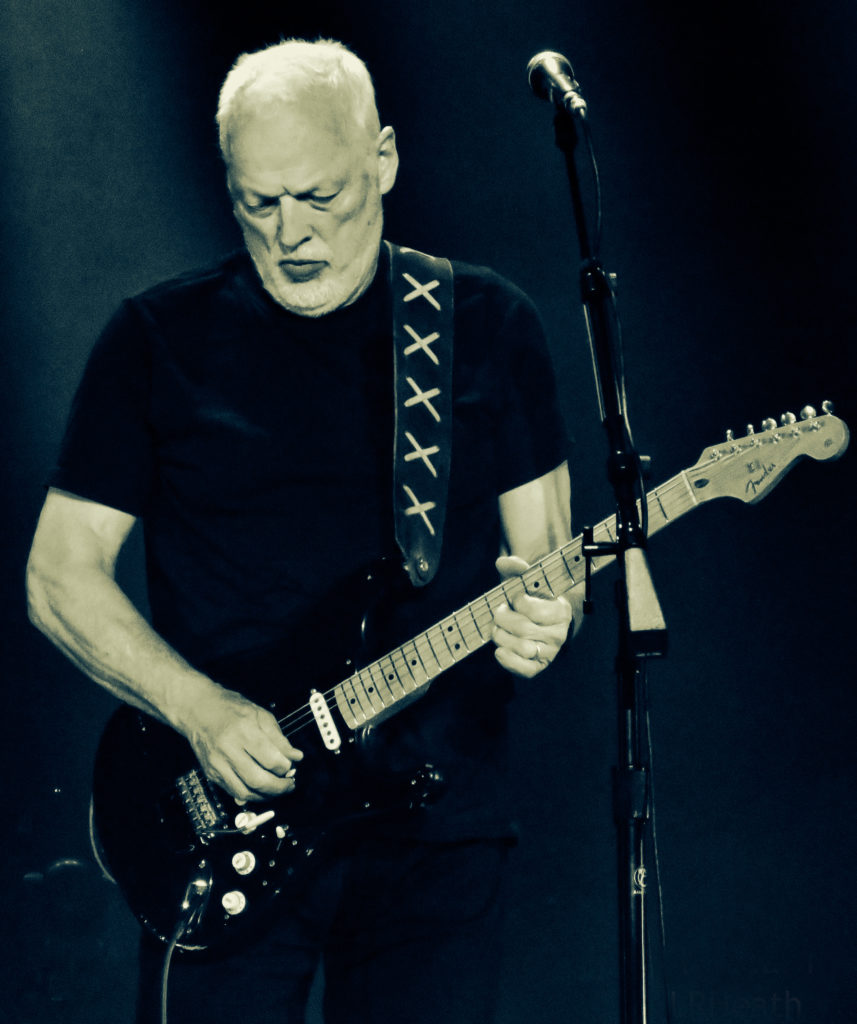
At this point, many people start to feel like they need to pause their lessons and ‘take a break’ to give themselves a chance to ‘catch up’. This is understandable, but even with the best of intentions it doesn’t work. If you didn’t absorb most of the material in the first place, and if there was too much of it to even remember what you covered, then how are you going to catch up? If you didn’t get something when you were there with the teacher explaining it, why would it suddenly click into place months later by itself?
Very quickly you’re back to square one, or the same position as you were before – buried under material you vaguely remember hearing about, but don’t really understand or know how to use and apply – only, now, you’re on your own and have no one to help. Most people at this point stall where they are, then rapidly start to go backwards, and in a little time the guitar becomes a source of frustration and disappointment rather than pleasure. Nobody continues something that isn’t fun or rewarding, and, sadly, if things reach this stage, many people stop playing entirely and hang up the guitar for good, believing they must not have had what it takes.
This is the standard ‘format’ and progression of guitar lessons, and it’s a process that doesn’t work for 99% of people. Even with a good teacher who is trying their best to help, there is so much you need that’s just missing in traditional lessons. If you think anyone ‘succeeds’ this way, let me tell you the truth – traditional lessons only work for a very small number of people who started practicing and studying music intensively at an age when they had no commitments in their life, so they were able to spend every waking minute with their guitar. They had years to puzzle it all out and basically work out all of the biggest things by themselves. They didn’t have jobs, careers, families and busy lives to take care of too. Imagine learning to play guitar like you want is a bit like trying to find your way through an enormous dark maze, and you have three ways you can approach it…
Trying to teach yourself is a bit like crawling around the maze guessing which way to go next, taking wrong paths and false shortcuts, and going round and round in circles hoping to stumble upon the exit before you collapse from exhaustion.
Normal guitar lessons are like going on foot with a navigator who forgot to bring along the map and most of the supplies, but says he went through it once 30 years ago and is pretty sure he kinda remembers the way back…
Fortunately, there is a solution – a real one, and one that works for people who want to play great guitar but don’t have 8 hours a day for the next 20 years to sit and try to solve the puzzle by themselves…

Welcome to the Frets on Fire Program
If learning guitar is like a maze and your teacher is your navigator, then the Frets on Fire Program is like having a helicopter crew in the sky casting a beam of light ahead, while calling in step-by-step directions on a walkie-talkie and winching you out of the mud whenever you get stuck. It’s far more than typical ‘guitar lessons’… it’s the ideal learning environment for the style of guitar you want to play, where every single element needed to make fast progress and get great results is in place and optimised to ensure your success.
Imagine an end to wandering about in the dark not knowing what to do, and being constantly frustrated by limitations and problems you don’t know how to fix…

Imagine that every time you pick up your guitar to practice or play you have fun, and can literally hear and see yourself becoming a better player every day…
Imagine truly being able to play guitar the way you have always wished you could, playing your favourite songs and jamming with friends with ease as people’s jaws drop at how great you sound…
All of this is not only possible in the Frets on Fire Program, it’s realistic and achievable. Reaching your goals and playing the way you want is not only within your grasp, the process of getting there will be fun and enjoyable with our unique teaching methods refined through years of testing.
Here is what is waiting for you inside the Frets on Fire Program
- Expert one-on-one tuition and coaching from a dedicated instructor and mentor with decades of experience and insight, who can save you years of wasted time and frustration
- A clearly structured and easy to follow method that steadily develops your skills and knowledge from beginner to advanced, step-by-step
- Expert oversight to ensure you get exactly what you need when you need it so that you can just focus on making progress. No more guessing about what to do, and wasting precious time on the wrong things
- Constant motivation, encouragement and support throughout every step of the learning process
- The musical knowledge you need to unlock the guitar and play the music you want, demystified with inspiring examples and demonstrations
- The technique(s) you need to play the guitar with freedom, broken down step-by-step with customised exercises to break through any technical barriers or plateaus
- Innovative lessons that literally install new abilities into your brain and fingers, so that you master your new skills and knowledge at a greatly accelerated rate
- The practice methods of pro musicians, that will allow you to make progress at home ten times faster than you are now and achieve in weeks and months what takes most people years and decades
- Answers you can rely on to your playing questions, and fast, effective solutions to any problems or bad habits
- An amazing repertoire or ‘setlist’ of legendary rock songs and blues standards that you’ll get to know inside-out and have the confidence to play in any setting
- Training on creative musical skills like improvisation and songwriting or composition, even if you don’t feel ‘creative’ with the guitar. These skills are and can be learned, and we know exactly how to teach you them
- The inside knowledge that makes it easy to come up with your own riffs and chord progressions for songs and jams, or create endless licks and expressive phrases that will sound great in any kind of solo
- Guided jam sessions, to help you put your expanding skills and knowledge into real-life practice - the perfect place to start jamming if you’ve never done it before or been nervous! Here, we show you how. There’s no pressure to jump straight in, but it’s right here for you when you’re ready (and you soon will be!)
- Experience the thrill and connection of playing in a group with like-minded people who love the same music as you. Take on rhythm or lead guitar duties while being backed up by bass and drums. It’s like having your own private rock band right here in your guitar lessons
- The keys to understanding how your instrument works and what is going on in the music you love. Discover what makes your favourite songs and solos sound so good, and how to exploit these powerful elements in your own playing
- The tools to identify the musical characteristics of the guitar players you love, and creatively borrow from your influences to develop your own unique guitar playing style
- The secrets of how to think like a pro musician that over time will take your playing into a whole new realm of possibility, with no limits on how good you can become
- The clarity, certainty and peace of mind of knowing that you’re doing the right things to make progress, and that any potential issues will be spotted and fixed before they can become problems
- Priceless camaraderie, support and motivation from a community of like-minded players and jamming buddies on the same guitar playing journey as you
- World class teaching studio facilities and equipment for you to make the most of your experience
- A friendly, welcoming and approachable club atmosphere rather than the stiff and serious vibe associated with traditional music lessons
- A 360-degree musical experience and real life “school of rock” for adults, that you can’t find anywhere else
Your fast-track to guitar playing success
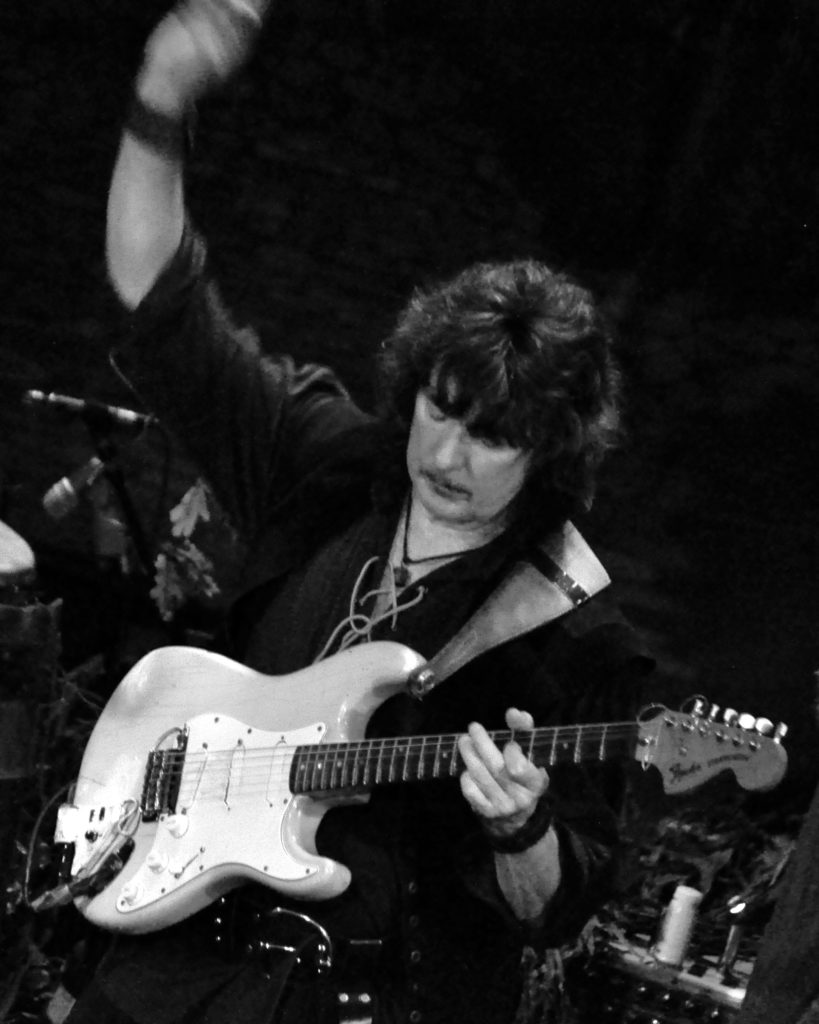
Perhaps you’re just starting out on your own journey, and learning guitar has seemed anything but easy so far. I know exactly how it feels. Or perhaps you already play and you’ve been trying desperately to get yourself to the next level, but find you’re stuck in a rut and spinning your wheels or getting patchy results. If so you are not alone. Whatever stage in the journey you find yourself, I’ll meet you exactly where you are now and we’ll go from there.
This program is your inside track to playing great guitar, and if you can bring just a fraction of my passion for this music to the table I guarantee you will get amazing results. I know how how to get your playing to where you want it to be because I got there myself, and I help people just like you get there every day. Your only job is to have a picture in mind of how you want to sound, and a willingness to receive instruction — my job is to light the way and show you how to get there, step by step. Let me show you how to unlock your talent and play guitar the way you have always wanted. You won’t believe how fast we’re able to move once we’re moving together.
You can do it
I know that sometimes people feel a little nervous about getting started even though they’ve wanted to do something exactly like this for many years. By far the most common thing I hear is that some people worry that they’re too old to get started, or have left it too late to learn guitar and be able to play it well. Rest assured this is absolutely not the case, and we’ve helped many students who started in their 50’s and 60’s develop the skills to play guitar, take part in jams and play their favourite classic songs.
If you are starting out from scratch or returning to guitar after a long break, then all the more the reason to ensure you get on the right path and do things efficiently from the start. Remember, these aren’t like typical guitar lessons that make learning music feel like walking uphill through water. I won’t let you fail, and that’s a promise. No matter what age you are now, or how much experience you feel like you have, you will make progress and see real results far sooner than you expect in the Frets on Fire Program.
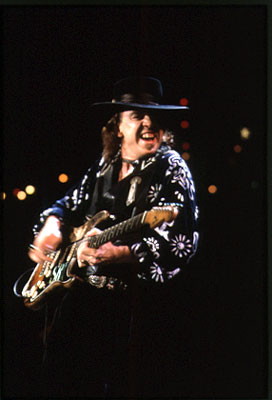
Let's get started!
I’m so certain I can help you transform your playing that I want to invite you to a free consultation session to show you how – together – we can take your playing to the next level and beyond. After your free consultation, there will be no pressure to go ahead with one of our tuition options if you aren’t 100% convinced that the Frets on Fire program is exactly what you need and what you’ve been looking for. Unlike some places there are no high pressure sales tactics here, because this program and the results we see our students get speak for themselves. If after this you decide not to go ahead, then you can simply walk away with some free professional guitar tips.
Take the first step today by clicking the button below. This will take you to a brief form on the next page where you can tell me more about yourself, where you are with your playing currently, and what you would like to achieve from lessons. If you have any specific goals you want to achieve or problem areas you would like to fix, let me know in the form and we can start tackling these right away. I’ll get back in touch soon to answer any questions you have and then we will arrange a convenient time for your no-obligation free consultation.
You know you’ve waited and wondered long enough already. Don’t wait, hesitate, procrastinate or put it off any longer. The time to take action is now. The only thing you can lose is time, because every day that you’re on the wrong path and aren’t playing like you could is a day that’s gone that you can’t get back, so let’s do this. Click the button below now:
“Blues and Rock music speaks straight from the heart and reaches out across all boundaries. We’re at a point in time when many of our musical heroes are leaving this world, if they haven’t already. We can never replace these legends, but we can keep the spirit of their awesome music alive. We owe it to our heroes and to ourselves to pick up the torch and keep it burning. If you’re ready to join me, click the button above to take the first step. I can’t wait to meet you!”
